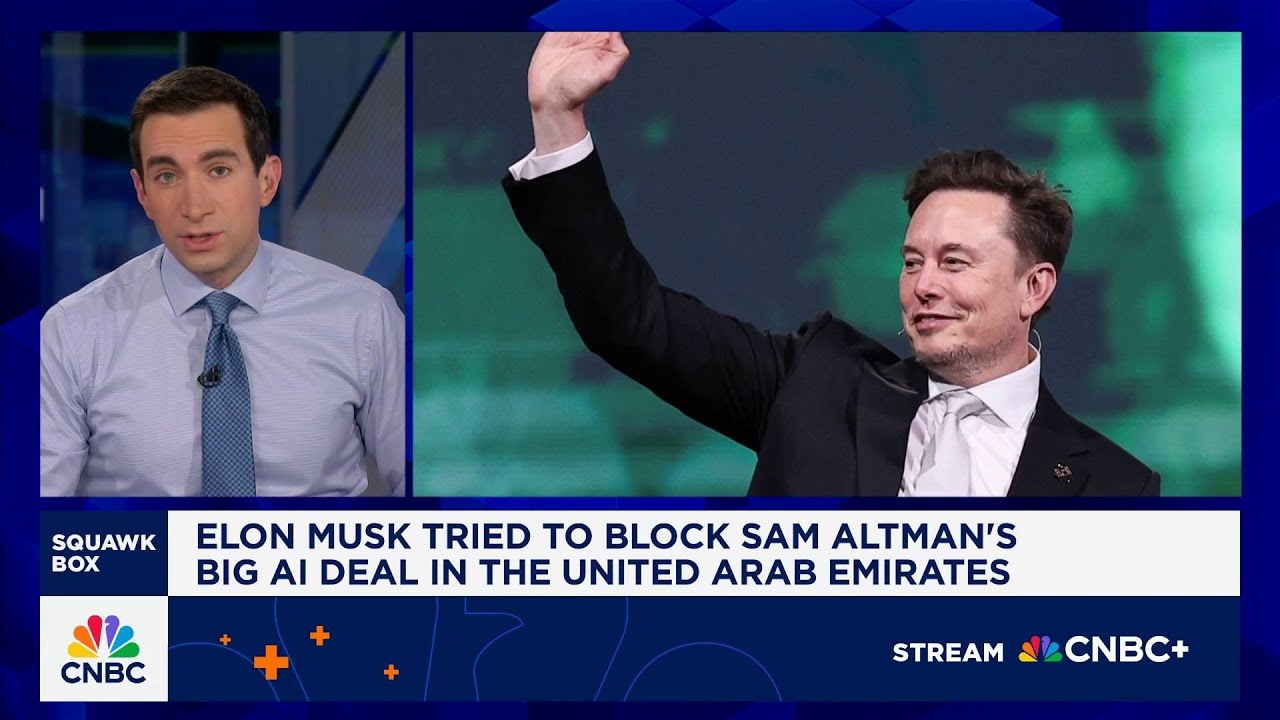The video explains how Elon Musk attempted to block OpenAI’s AI data center deal in Abu Dhabi to favor his own startup, XAI, raising concerns about his influence over U.S.-UAE AI projects and his political maneuvering. It also discusses Musk’s broader role in shaping tech and political discourse, highlighting the complex dynamics of his relationships with political figures like Trump and the implications of his aggressive tactics.
The video discusses Elon Musk’s efforts to block OpenAI’s deal to build one of the world’s largest AI data centers in Abu Dhabi. Sources reveal that Musk attempted to prevent the deal unless his own AI startup, XAI, was included. He warned officials that the deal would not gain President Trump’s approval without Zay’s involvement, leading to last-minute interference that frustrated White House officials. This intervention by Musk raised concerns about his lobbying activities and his influence over U.S.-UAE AI projects, with some viewing it as Musk acting in his own interests rather than the broader national or technological good.
Sam Altman, CEO of OpenAI, was asked about Musk’s potential involvement in such deals and expressed skepticism, believing Musk wouldn’t engage in lobbying or political maneuvering to influence AI infrastructure deals. However, recent reports suggest that Musk’s involvement was more significant than initially thought, with internal White House tensions emerging over his efforts to sway the Abu Dhabi deal. Musk’s actions appeared to be motivated by his desire to ensure his AI ventures, like XAI, gained strategic advantages, possibly at the expense of broader diplomatic or commercial interests.
The conversation then shifts to Musk’s broader reputation and the political landscape, referencing Florida Governor Ron DeSantis’s comment about “Doge versus the swamp,” implying a struggle between Musk’s influence and entrenched political interests. The speakers debate whether the outcome of Musk’s endeavors, such as the defeat of certain political or financial interests, should be viewed positively or negatively. They acknowledge Musk’s role in shaping public discourse around technology and politics, but also recognize the complexities and potential downsides of his aggressive tactics.
Further, the discussion touches on the political dynamics in the U.S., noting that Republicans control the House, Senate, and presidency, yet significant policy issues like deficit reduction remain unresolved. The speakers express skepticism about meaningful progress, citing the persistent gridlock and the difficulty of passing comprehensive legislation. Elon Musk’s comments about bills being “big and beautiful” but unlikely to be both highlight the challenges of legislative reform in a polarized environment.
Finally, the conversation concludes with remarks on the perceived relationship between Musk and Trump, suggesting that despite some public splits or disagreements, there remains a mutual dependence. Musk is seen as needing Trump, and vice versa, though recent reports indicate some distancing, such as the $10 million gap between Trump and CBS for an interview. The speakers reflect on whether this relationship is truly fractured or just a temporary divergence, emphasizing the ongoing political and personal alliances that influence Musk’s actions and public image.
